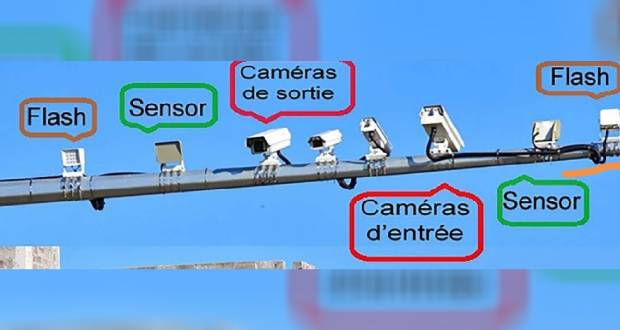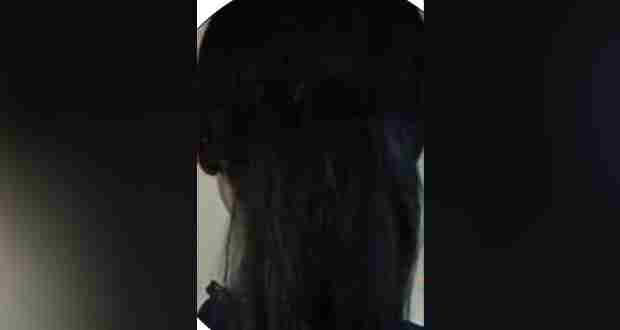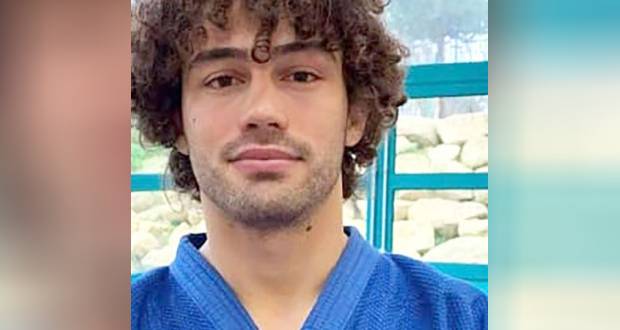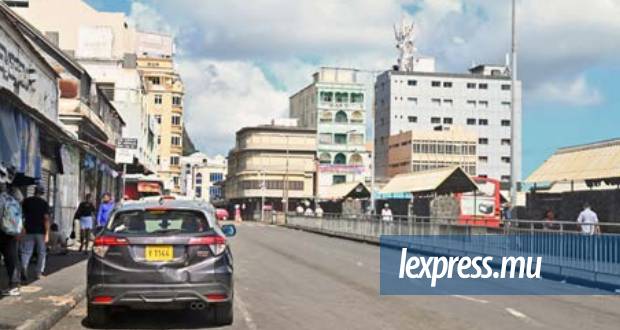Publicité
The rise of synthetic drugs in Paradise Island (Part 1)
Par
Partager cet article
The rise of synthetic drugs in Paradise Island (Part 1)


For some time already, we heard that synthetic drugs were being sold and consumed regularly on our island. During the by-election campaign in Belle-Rose-Quatre-Bornes, our Reformers had the opportunity to engage with people from different spheres of life. They had discussions about their daily routines and problems affecting their neighbourhood. Through this process of engagement, it became clear that the problem of synthetic drugs both in terms of availability and consumption was much worse than we had previously thought.
In fact, we noted an alarming proliferation of synthetic drugs in most areas of Belle-Rose-Quatre-Bornes. The targets are primarily youngsters and these drugs are sold at very cheap prices. The supply is abundant and available at any time of the night. During daytime, synthetic drugs are sold openly at street junctions, bus stops, local schools and colleges, close to ‘tabagies’, corner shops, drinking bars and local football/sports grounds in most areas.
After the by-election campaign, we decided to find out what was happening in other regions of the island. Not surprisingly, we came across the same phenomenon in other constituencies. The synthetic drug problem is clearly spread across the country, in towns and villages alike! We observed with great disbelief that on average at least two out of five youngsters aged between 15 and 25 were users of different synthetic drugs, which represents a staggering 40% of our youth! According to Police sources, around 45% of arrests effected for drug related offences relate to synthetic drugs!
These drugs are a fairly recent phenomenon, which were originally designed in America, Europe and China as chemical compounds that mimic the effects of cannabis. They were principally a mixture of liquid chemical products that were sprayed on dried leaves and plant materials for smoking purposes. As they had a different chemical composition from that of cannabis, they could not be ruled out as prohibited products – and were therefore, openly sold under a variety of names (‘Spice’, ‘K2’, ‘Strawberry’, ‘Black Mamba’ amongst others), as ‘safe legal highs’ on the streets of London and New York! Once the law caught up with a specific product, the chemical formula just had to be slightly altered to create a new ‘unprohibited’ drug, which had the same desired effects, but whose dealers and consumers could not be prosecuted!
This constant alteration of chemical composition led to the development of other forms of synthetic drugs which were aimed at replicating the effects of ‘ecstasy’ and cocaine. Worse, the ease and rapidity with which these synthetic drugs could be produced led to more and more individuals turning their garage or even bedrooms into shady laboratories – experimenting with dangerous chemical products of their own choice, and therefore making synthetic drugs more potent and more destructive, without any kind of quality control or checks.
«Although nearly similar to cannabis in physical form, synthetic drugs are a world apart in terms of effects.»
In Mauritius, synthetic drugs come from two main sources. Firstly, drug dealers import (often through the Internet) the chemicals, generally in liquid or powder form and spray them onto leaf material or ‘herbes de Provence’, bought from any supermarket. Apparently, tea leaves plucked from the Bois-Cheri area is also used and left to dry before being sprayed! Secondly, it was reported that other unscrupulous individuals experiment with the composition of the drugs within their homes. Shockingly, they use harmful and toxic products such as pesticides, rubber, ‘rattex’, ‘javel’, only to name a few. The variety of synthetic drugs sold in Mauritius is astounding.
Abundant supply, as described above, led to very low and accessible market prices. For instance, the price of different types of synthetic drugs on our streets ranges from Rs 50 to Rs 150 per dose, making it much more competitive and cheaper than cannabis. There are cases where young 14-year-old kids have been contributing Rs 25 each from their pocket money to regularly buy and share a dose of synthetic drug for Rs 100.
Although nearly similar to cannabis in physical form, synthetic drugs are a world apart in terms of effects. They alter the function of the brain, leading to paranoia, anxiety, loss of touch with reality, zombielike behaviour, seizures, loss of consciousness and sometimes death. There are reported cases of death following the consumption of synthetic drugs in Mauritius! The synthetic drug user quickly develops a tolerance level and therefore needs higher doses of the drug to achieve the same desired effect. This s u b s t a n c e abuse therefore leads to high addiction and increased danger, as it acts on the receptor sites in the brain and is several times more potent than cannabis.
Our towns and villages are greatly impacted by the upsurge in synthetic drug usage. Recent short videos circulating on Facebook show how many youngsters have been expressing bizarre behaviour using a new synthetic drug known as ‘Flakka’. This drug, chemically known as ‘alpha-PVP’, is similar to other synthetic cathinone drugs popularly called ‘bath salts’. It comes from a foulsmelling crystal, which can be swallowed, snorted, injected or smoked.
The ‘Flakka’ users’ behaviour is frightening, dangerous and socially damaging. Upon consumption, they feel some kind of ‘superhuman strength’, coupled with a loss of awareness and experience hallucinations, paranoia, delusions, psychosis, severe anxiety, aggressiveness and self-destructive behaviour.
The ease with which these synthetic drugs can be purchased on our streets and also the Internet, coupled with the ability to have the drugs shipped to the purchaser’s doorstep is simply mind-blowing. A quick Internet search carried out by typing ‘research chemicals’ on Google or any web browser reveals all sorts of opportunities to order online and purchase various synthetic drugs which may be transported by worldwide delivery services. A kilogram of ‘Flakka’ is sold for about USD 1,500 in the United States. It produces up to 10,000 doses, as a dose to achieve the desired effect is one tenth of a gram. The cost for a single dose of ‘Flakka’ in the United States is around USD 4 to USD 5, i.e. around Rs 175.
On our streets, a dose of synthetic ‘Flakka’ can be bought for around Rs 150. A quick calculation shows an incredible ‘return on investment’, whereas a kilogram purchased for USD 1,500 i.e. around Rs 50,000, with 10,000 doses per kilo and sold at Rs 150 per dose, generates a revenue of Rs 1.5 million, i.e. a profit of around Rs 1,450,000 per kilo. Some youngsters explained that with ‘Flakka’ they experience a sharp rise in body temperature, they sweat profusely, have an accelerated heart rate, develop incredible strength, making them believe their body is on fire.
Some described that they had poured water on themselves and others had stripped their clothes and run on the roads. Due to the paranoia they experienced, they believed that they were being chased by persons, dogs and monsters who attempted to harm or kill them. According to research conducted, this state of mind is often referred to as «excited delirium».
Although some users stated that they are afraid of the drug, they nevertheless continued using it as it is cheap and highly addictive. The users explained that their family members do not wish to have them anywhere near them when they have taken the synthetic drug due to their bizarre behaviour. They are also aware that if they do not receive immediate medical attention, they are seriously at risk. Others explained to our Reformers that they simply don’t know what they are buying and consuming as the source of the drug is not verifiable. Some feel they have been used as ‘cobayes’. There are also cases where synthetic drugs have been mixed with tobacco and sold to youngsters as pre-rolled cannabis joints, but without any cannabis.
«We observed that (…) two out of five youngsters aged between 15 and 25 were users of different synthetic drugs.»
Government and other political parties have so far turned a blind eye to what is really happening on the ground. If this proliferation continues, in 2 to 3 years’ time, a whole generation will be affected. With the cheap prices at which the drugs are being sold, they are readily available to youngsters and students who have limited means. It is also obvious that currently available resources provided by Government in terms of personnel, equipment, training, rehabilitation facilities and more importantly, funding, are neither sufficient nor upto- date to deal with the magnitude of the synthetic drug problem which our country is facing.
It is also a fact that Government has not been able to come up with appropriate legislation to curb the massive threat that the continued proliferation of synthetic drugs poses to the health and welfare of our citizens. True it is, that enacting legislation to address the problem of constantly evolving chemical synthetic drugs is not an easy task. But, it is also true to say that the current government has been ‘ball watching’ and is left to playing ‘catch up’ with the synthetic drugs problematic. As hard as it may be to accept, the unbelievable rise in the tide of synthetic drugs has to be addressed now! It is imperative to curb the influx and local production of these synthetic drugs. If Government does not propose a ‘Synthetic Drug Bill’ to Parliament soon enough, then disaster looms ahead!
«It would typically require five to six officers to deal with one person under the influence of ‘Flakka’, due to the abnormal strength its users display.»
In the meantime, it is absolutely necessary for a ‘hotline’ to be introduced as a matter of priority, where cases of ‘excited delirium’ may be reported. A protocol must be established to respond to emergency situations. Police officers must be trained to deal with such situations. It would typically require five to six officers to deal with one person under the influence of ‘Flakka’, due to the abnormal strength its users display. They certainly present a public safety concern and need to be restrained. Such interventions, however, can easily be misconstrued as situations of police brutality, when it is perceived that five to six officers are overpowering one single person. The officers, however, must make a situation safe before paramedics can administer any type of medical treatment to the ‘Flakka’ user.
In our hospitals, the problem is further exacerbated, as synthetic drug overdoses and resulting ‘excited delirium’ cases are extremely disruptive in a hospital emergency room and require additional personnel to control and treat them. This greatly limits the number of staff available for the other hospital patients. Currently, in most of our hospitals, there are huge staffing difficulties and lack of trained personnel to deal with such cases.
We have to ask ourselves several questions: Why are synthetic drugs proliferating with such comfort in Mauritius? Why is it so easy on the supply side? Why are the prices so low? How on earth are these drugs accessible to kids aged 14 to 18? What will happen in 2 to 3 years’ time? And more importantly, what can possibly be done to protect our society and reduce the harmful impact that these drugs are having on our youth?
After 50 years of Independence, we should be mature enough as a country to forget taboos, to be aware and understand the problem, rise up to the challenge and find real solutions, which would work and be sustainable over time. It is our humble opinion that any caring government should address this problem as a matter of utmost priority and urgency. Our youth deserves much better!

Publicité
Les plus récents






